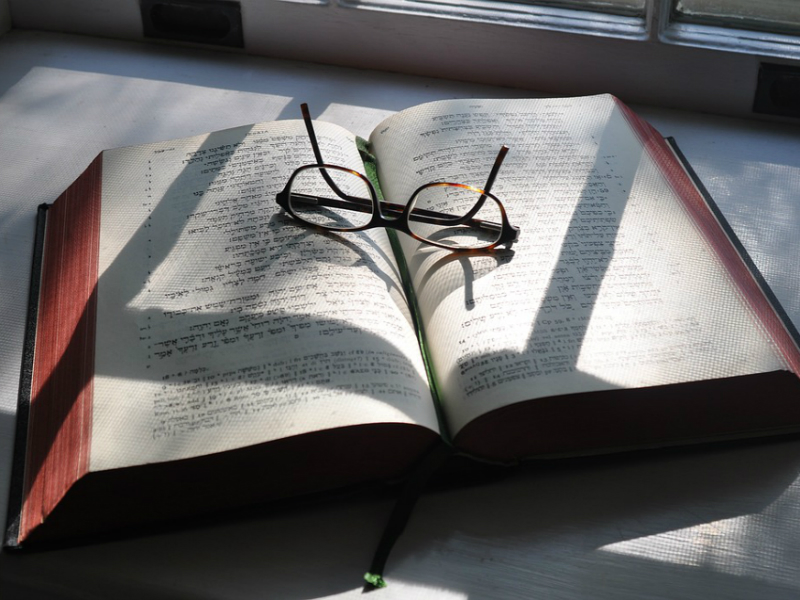“The Psalms are poems to be sung. They express awe at the world’s beauty; they are sung in prayerful hope for justice or solace in the face of suffering. Those early songs still resonate, expressing elation and weariness, joy and despair.”
It is not surprising that as a magnificent piece of poetry, Tehillim has inspired artists to express their innermost needs. As with most of the books of the Tanach, each word in Tehillim is associated with “te’amim,” accents, notes or trope symbols which allow them to be chanted.
Although all Jews use a standard set of te’amim, it is fascinating to hear how Ashkenazim and Sephardim have each have a distinctive musical spin. First take a listen to Isaac Gantwerk Mayer singing Psalm 146 in the traditional Ashkenazic style. Then listen to Chacham Baruch Ben Haim Z”TL do the same, Syrian Sephardic-style.
Panel Discussion: Introducing The Psalms Experience
The Psalms Experience describes itself as: 150 psalms | 150 composers | 1,000 years of music | 12 concerts. Staged at New York’s Lincoln Center in 2017, it brought together four choirs and featured “50 psalms by 150 different composers from Bach and Handel to today’s leading artists.” Although the concerts have concluded, you can still watch their panel discussion about the universal appeal of the Psalms. Panelists include the Jewish Theological Seminary’s Neil W. Levin who is Artistic Director of the Milken Archive of Jewish Music, Robert Alter, Psalms translator and professor of Hebrew Literature at UC Berkeley and David Van Biema, Time magazine’s former chief religion writer and author of a book about the Psalms in culture.
Another part of this project that you can still enjoy is their “Psalms Gallery.” For each Psalm, the Psalms Experience has paired up an image from the New York Times photo archives. Some are pretty obvious: For Psalm 23, (“The Lord is my Shepherd…,”) there is a lovely photo of a shepherd at work on a bucolic hill (in Patrick Springs, Virginia.) But how about some of these less obvious choices:
Psalm 12 – A photograph from the Army McCarthy Hearings, 1954 paired with:
“I call out to you / For the real is gutted / The truth has fallen away / From the human family”
Psalm 45 – Times Square on V-J Day, August 14, 1945
“Gird your sword on your thigh, O warrior / your glory and your grandeur. … / They are led in rejoicing and gladness / they enter the palace.”
Psalm 60 – Tainted water sample from Flint, Michigan, 2016
“God, You have abandoned us, breached us / You were incensed – restore us to life! … / You sated Your people with harsh drink, You made us drink poison wine.”
Psalm 66 – Rabbi Abraham Skorka, Pope Francis, and Omar Abboud at the Western Wall, Jerusalem, 2014
“Shout out to God, all the earth. Hymn His name’s glory. Make His praise glory. … Bless, O peoples, our God, and make heard the sound of His praise.”
Psalm 150 – Count Basie Band performs in a nightclub, 1954
“Praise to you in your holiness … / Praise with the blowing of trumpets… / Praise with timbrel and dance / With stringed instrument and pipe … / And with crashing cymbals / Every breath is your praise”
Leonard Bernstein: Chichester Psalms (complete)
Best known for West Side Story, Candide and On the Town, Leonard Bernstein also created two overtly Jewish compositions, his Third Symphony (Kaddish), 1963, and Chichester Psalms, 1965. Commissioned for the Southern Cathedrals Festival in England, Bernstein’s often lively choral composition uses Psalms 23, 100, 108, 131 and 133 in the original Hebrew. As noted in the excellent Wikipedia entry, “Bernstein stated explicitly in his writing that the solo part may be sung by either a countertenor or a boy soprano, but never by a woman. This was to reinforce the liturgical meaning of the passage sung, perhaps to suggest that Psalm 23, a ‘Psalm of David’ from the Hebrew Bible, was to be heard as if sung by the boy David himself.”
I enjoyed listening to Bernstein conducting the Israel Philharmonic Orchestra while following the text in the original Hebrew (or transliterated into English.) You can also watch the maestro conduct the Boys’ and Men’s Choir of the Poznan Philharmonic.
What is the source of Tehillim’s power? Rabbi Y.D. Webster explains that what is critical is believing that everything comes from God “and not from one’s own power. Shira [song] is the ultimate expression of a recognition that has so permeated the heart that it is aroused to give outward expression.”
